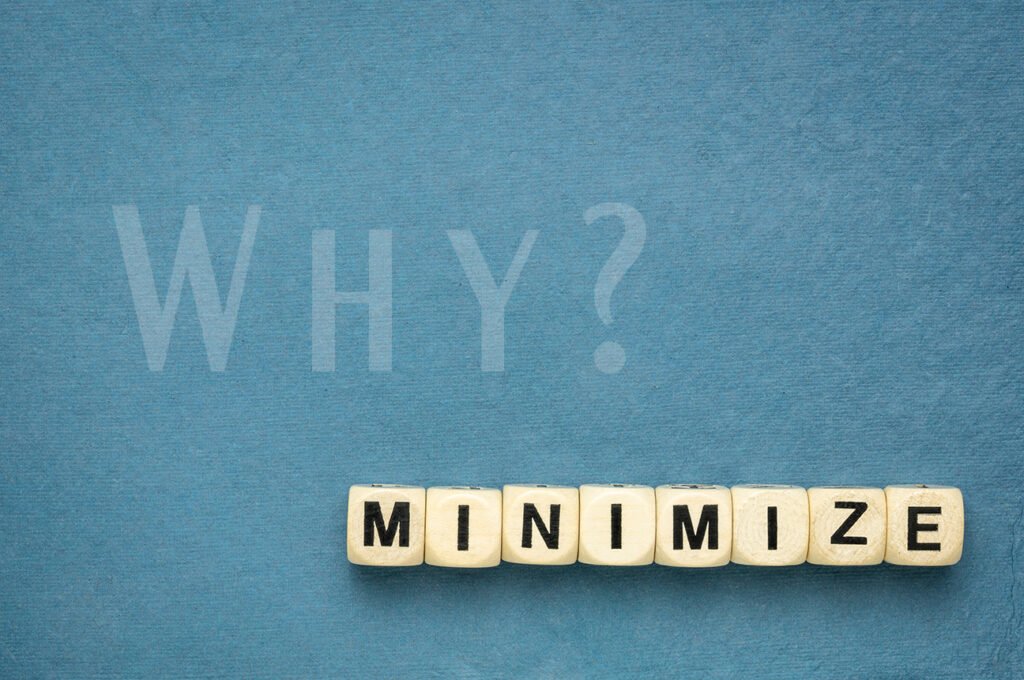- Minimalism, Do You Know How to Live The Lifestyle
- Minimalist lifestyle, Focus On The Benefits
Minimalism, Do you know how to live the lifestyle? In a world characterized by consumerism, materialism, and constant information overload, minimalism has gained traction. As a result, a counter-cultural movement that advocates for simplicity, mindfulness, and intentional living has grown. Minimalism is more than just a design aesthetic; it is a way of life. In fact, it’s an approach to striping away excess, prioritizing what matters, and finding contentment in simplism.
Above all, in this new series, we will cover the essence of minimalism. We want to share how minimalism can transform lives by promoting a simpler lifestyle.
Defining Minimalism
Minimalism is a multifaceted term with applications in various aspects of life. Consider that minimalism includes art, design, architecture, and lifestyle. At its core, being a minimalist is a deliberate and conscious choice. A choice to simplify and declutter one’s life.
The Principles of Minimalism
According to becomingminimalist.com there are 7 principles to follow for being a minimalist.
- Living with intentionality
- An abandon from the passion of possession
- Disregarding modern mania
- Freedom from duplicity
- Avoiding consumerism
- Focusing on the internal, not the external
- Realizing that minimalism is achievable
Another way to view the above principles is to recognize that minimalism is also about focusing on what is essential and valuable. It’s discarding the non-essentials. As such, it’s about quality over quantity, while embracing intentional living, and recognizing that less can indeed be more. Here is our view on the principles of Minimalism:
1. Simplicity
The heart of minimalism is simplicity. This principle encourages individuals to strip away the unnecessary and eliminate excess in all aspects of life. It also involves decluttering physical spaces and simplifying daily routines. In addition, it’s also about reducing commitments and distractions.
2. Intentionality
Minimalists are deliberate and purposeful in their choices. Above all, they prioritize what aligns with their values and goals. They also avoid mindless consumption or participation in activities that do not contribute to their well-being or purpose. Therefore, each decision made is done with careful consideration.
3. Mindfulness
It is the cornerstone of minimalism. It entails being present in the moment and appreciating experiences. And being mindful of relationships and possessions that bring joy and meaning. This awareness helps minimalists avoid chasing fleeting desires and fosters contentment.
4. Quality over Quantity
Minimalists prioritize quality over quantity. Equally, they invest in well-made, durable possessions that serve them well. And they would rather not accumulate a multitude of disposable items. This principle extends to relationships, emphasizing deep, meaningful connections over superficial ones.
5. Decluttering
Decluttering for minimalists involves removing unnecessary possessions and commitments. In fact, this process creates physical and mental space. Also, reducing stress, and promote a sense of clarity and calm.
6. Financial Freedom
For Minimalist, financial freedom is about reducing spending on non-essentials and prioritizing needs over want. They often experience financial benefits that lead to increased financial freedom. This happens because of reduced debt and the ability to allocate resources to experiences and pursuits that align with their values.
7. Environmental Consciousness
Many minimalists adopt an eco-friendly mindset. They consume less and choose sustainable options. Further, they seek to reduce their environmental footprint and make sustainable choices.
8. Focus on Essentials
Minimalists concentrate on what is essential to their well-being and happiness. Specifically, they distinguish between what is necessary and what is superfluous. This ensures they center their lives around the things that matters to them.
9. Balanced Living
Minimalism promotes balance in all areas of life. This way of living encourages those pursuing this lifestyle to balance their resources. This includes their time, energy, physical, emotional, and spiritual well-being. They forego being overwhelmed by excessive demands or desires.
10. Gratitude
Minimalists often cultivate gratitude as a guiding principle. Also, they appreciate and express thanks for the simple pleasures of life. One of their guiding motivation recognizes the value of what they have rather than craving what they don’t have.
11. Time and Energy Management
Minimalists choose how to manage their time and energy. They gravitate toward activities and pursuits that’s align with their values and priorities. Committed to avoiding over-committing and strive to maintain a healthy work-life balance.
12 Authenticity
Minimalism encourages individuals to live an authentic life. They choose to be true to themselves and their values. Minamilism encourages self-awareness and the courage to make value-align choices. Their choices usually reflect personal desires and beliefs.
These principles of minimalism offer a blueprint for leading a simplified and fulfilling life. The specific application of these principles may vary from person to person. However, the overarching goal is to find contentment and purpose by focusing on what matters and letting go of the excess and distractions that can clutter our lives.
Why Minimalism?
A minimalistic lifestyle is important for several compelling reasons. Consider that it offers many benefits and addresses many demands our modern society faces. Here are thirteen reasons why:
1. Reduced stress and anxiety
Living in a clutter-free and simplified space can reduce stress and anxiety. With fewer possessions to manage and less mental clutter. The result of a life that is clutter-free internally and outwardly is peace of mind. Equally, a greater sense of calm.
2. Enhanced Focus and Productivity
Minimalism helps individuals concentrate on their goals and priorities. Further, this helps to eliminate unnecessary distractions and commitments. It also enhances focus and can lead to increased productivity. When we are productive, there is a greater sense of accomplishment.
3. Improved Financial Health
Embracing minimalism often leads to reduced spending on non-essentials. We’ve mentioned prioritizing need over want; for minimalists, this is their creed. Therefore, it’s unsurprising their efforts results in substantial savings.
4. Environmental Impact
Minimalists consume less and choose sustainable options. In doing so, they reduce their ecological footprint. By avoiding excessive consumption and emphasizing quality over quantity, they contribute to a more environmentally conscious lifestyle.
5. Enhanced Physical Health
A minimalist lifestyle often promotes better physical health. Also, a simplified diet, reduced exposure to materialistic pressures, and increase time for exercise, self-care and improved well-being.
6. Stronger Relationships
Minimalists prioritize meaningful relationships over superficial ones. In fact, by eliminating toxic or draining connections, they create a space in their lives for deeper and fulfilling bonds with friends and family.
7. More Free Time
Without a doubt, simplifying one’s commitments and possessions often results in more free time. Thus allowing for greater flexibility in how individuals spend their days. With more free time, it’s easier to pursue hobbies, engaging in leisure activities, or to dedicate time to personal growth.
8. Increased Creativity
A clutter-free, simplified environment can stimulate creativity. Minimalists have a greater mental space for imaginative thinking. As a result, they can more easily explore new ideas and projects.
9. Enhanced Emotional Well-being
One reason minimalist experience improved emotional well-being is because of fewer material possessions to define their sense of self-worth. They often have stress-free lives because they choose to have less in all aspects of their lives.
10. A Greater Sense of Purpose
Minimalism encourages individuals to clarify their values and priorities. Their self-awareness helps them identify genuine passions and goal.
11. Environmental Sustainability
In a world grappling with environmental challenges, minimalism aligns with sustainable living practices. Consuming less and making conscious choices is the core of sustainable living.
12. Counteracts Consumerism
Minimalism challenges the culture of consumerism, that often leads to overconsumption and environmental degradation. Again, by emphasizing quality over quantity, minimalists reject the idea of linking happiness to material possessions.
13. Emotional Freedom
Letting go of unnecessary possessions and commitments can provide a sense of emotional freedom. It allows individuals to break free from the pressures of societal expectations and materialistic pursuits.
Summary
In a world overwhelmed by excess, minimalism offers a refreshing alternative. It encourages individuals to rethink their values, possessions, and priorities, leading to a more intentional and fulfilling life. By embracing the principles of simplicity with intentionality, individuals can experience the many benefits of a minimalistic lifestyle. Their approach reduces stress and enhances focus, which improves relationships and has a positive impact on the environment. Minimalism invites us to ask ourselves what matters and to find contentment in the essentials. A minimalist way of living makes a powerful and transformative statement about choosing a simpler approach to live in today’s complex world.









